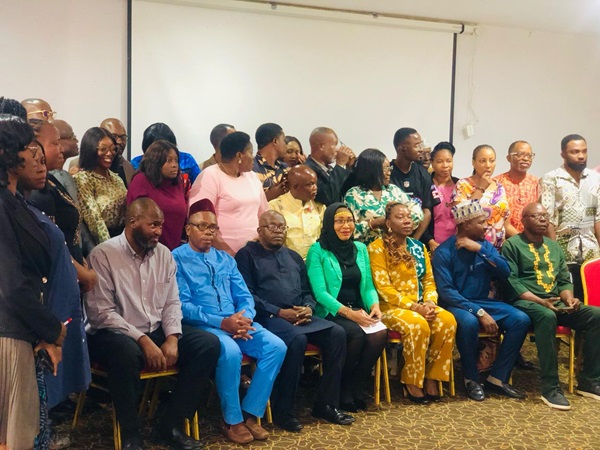
Medical experts in the country are increasingly concerned about the challenges faced in treating infections due to the rising rates of antimicrobial resistance (AMR).
These concerns were expressed during a five-day training session for journalists, civil society organisations (CSOs) and community-based organisations (CBOs) focused on AMR.
According to Science Nigeria, the training was organised by the Fleming Fund Country Grant (FFCG II), a project supported by the UK Government’s Foreign, Commonwealth and Development Office (FCDO).
Chairperson of the Nigeria Core Group for Policy Briefs Development Steering Committee under the WHO RADAAR and Evidence-informed Policy Network (EVIPNet), Dr. Mary Alex-Wela emphasised the global implications of drug-resistant infections and the importance of understanding AMR.
“It is crucial to understand AMR, discuss its causes, and explain the global implications of drug-resistant infections,” Alex-Wela stated. She is also a consultant clinical microbiologist at the University of Port Harcourt Teaching Hospital.
Alex-Wela explained that AMR occurs when microorganisms such as bacteria, viruses, fungi, and parasites become resistant to drugs that once effectively killed them or inhibited their growth.
“This resistance complicates treatment, increases the risk of disease spread, prolongs hospital stays and can even lead to death. Factors contributing to AMR include the overuse and misuse of antibiotics, inadequate infection prevention and control practices, the use of antibiotics in agriculture and a lack of effective surveillance.
“AMR currently leads to approximately 700,000 deaths annually worldwide. Without effective antibiotics, routine surgeries and treatments become much riskier. The economic impact of AMR could reach up to $100 trillion by 2050, making it a global issue that requires a One Health approach, addressing human, animal and environmental health,” Alex-Wela said.
She highlighted that efforts to combat AMR include improved antibiotic stewardship, increased public awareness, and enhanced health system strategies.
A director at the National Veterinary Research Institute (NVRI) in Vom, Plateau State, Dr. Sati Ngulukun, shared insights on the “National AMR Landscape: Policies and Surveillance in Nigeria.” Ngulukun stressed the importance of national policies in tackling AMR and the need for improved surveillance to address this growing threat.
Laboratory and research director at Rotan Medical Diagnostics Ltd, Dr. Akujuobi Igwe discussed the challenges faced by laboratories and diagnostic centres in addressing AMR. He spoke about the role of “Private Sector Engagement in AMR: Challenges and Opportunities,” highlighting the vital role the private sector can play in combating AMR.
Igwe underscored the necessity for better collaboration between the private and public sectors to enhance AMR surveillance, promote responsible antibiotic use and ensure timely access to quality diagnostics.
Earlier, a pharmacist and senior technical advisor at Management Science for Health (MSH), Kabiru Abdullahi, stated that the training aimed to equip key stakeholders with the tools needed to advocate for AMR solutions. Abdullahi also noted that the training sought to raise awareness about the dangers of antimicrobial misuse and influence public and policy behaviour towards combating AMR.
Science Nigeria further reports that FFCG II has been instrumental in addressing the growing global threat of AMR in Nigeria. This project, managed by MSH, collaborates closely with the One Health Ministries – the Federal Ministries of Health, Agriculture, and Food Security (FMAFS) – to enhance Nigeria’s capacity to tackle AMR through human, animal and environmental health.
The project aligns with the Nigeria FFCG Phase 2 Country Investment Strategy (CIS) and focuses on four priority areas: producing quality AMR data, effectively analysing this data, sharing the analysis with decision-makers and promoting sustainable investment to combat AMR.
Forty-seven trainees, including journalists, CBOs and CSOs’ representatives are participating in the training.

